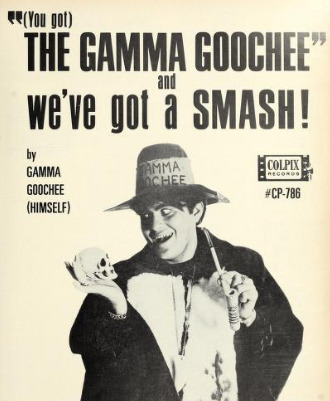
Posted on 02/06/2020 11:08:20 PM PST by nickcarraway
The Yamaguchi-gumi is one of the most feared crime syndicates in Japan and yet its name may become a relic of the past in 2020 if recent reports are to be believed.
In terms of size, the Kobe-based Yamaguchi-gumi is already on the wane. The syndicate boasted nearly 40,000 members at its peak, but membership has steadily declined over the years.
As the group was celebrating its centennial in August 2015, a faction named the Yamaken-gumi broke away from the syndicate, taking thousands of members with them to form the Kobe Yamaguchi-gumi.
The Kobe Yamaguchi-gumi claimed they were leaving the group in an attempt to revive traditional yakuza values.
However, the subsequent arrests of leading figures for fraud that targeted the elderly didn’t make them seem much better than the group they left. It was effectively business as usual.
The tension between the two groups boiled over into a fully-fledged gang war, with attacks on rivals and reprisals spilling onto the streets.
A third faction named the Ninkyo Yamaguchi-gumi emerged in 2017, ostensibly renouncing criminal activity. Yoshinori Oda, the group’s charismatic leader, is believed to have wanted his syndicate to patrol the streets and preserve law and order.
This enraged the Kobe-Yamaguchi syndicate. It organized a hit on Oda, who survived the attempt. His bodyguard was killed in the attack.
In October, Kiyoshi Takayama, the second most powerful member of the Yamaguchi-gumi syndicate was released from prison after serving time for extortion, and tension between the rival gangs flared again.
According to the National Police Agency, more than 120 violent incidents related to organized crime — trucks driven into offices, stabbings in the street and murders — were reported to authorities between Aug. 27, 2015, and Dec. 31, 2019.
By December, a number of prefectures had begun discussing measures to end gang violence and bring crime syndicates under control by the time the Olympics open.
On Jan. 7, public safety commissions in six prefectures officially designated the Kobe Yamaguchi and Yamaguchi-gumi as “warring crime syndicates.”
This designation bans five or more members from any syndicate from meeting at their offices or residential locations. Syndicates are also banned from using their offices.
The Yamaguchi-gumi has been visibly affected by the designation. The restrictions are so severe that their fortress-like headquarters in Kobe look like a virtual ghost town.
The move probably won’t affect the syndicates online conversations, but it does represent a huge loss of public prestige and certainly hampers the group’s unity.
The designation won’t end until the gang war is over or a faction dissolves.
On Jan. 12, the Ninkyo Yamaguchi-gumi changed its name to Kizuna Kai (Association of Bonds) and informed its members via Line. It looks to be giving up a name that carries a lot of weight in order to survive.
The police have been trying to dissolve the Yamaguchi-gumi for many years, but it has long rebuffed their attempts.
One former leader of the group, Kazuo Taoka, reportedly told those in attendance on his deathbed that “I won’t dissolve the Yamaguchi-gumi, even if I’m the only member left.”
The Yamaguchi-gumi has survived internal rivalries before but times have changed.
Takayama, who has long been the shadow leader of the group, certainly doesn’t appear to understand this.
A senior police officer who has been dealing with organized crime for more than a decade told me that the Yamaguchi-gumi brand is becoming “more of a burden than a plus.”
A low-ranking Yamaguchi-gumi gang member told me on condition of anonymity that Takayama is an “anachronism.”
“This isn’t an age where you solve internal conflicts with shoot outs or gang wars,” he said. “The penalties for owning, shooting and wounding someone with a firearm guarantee that you’ll spend decades in prison if you’re caught. Frankly, who wants to do that when there’s no certainty that there will be anyone to welcome you back (once you’re released)?”
[[Yamaguchi-gumi ]]
Japanese Mafia Gummi Bears-

Why be a criminal breaking the law?
Just get elected to public office and you can do the same stuff, and then its legal!
Disclaimer: Opinions posted on Free Republic are those of the individual posters and do not necessarily represent the opinion of Free Republic or its management. All materials posted herein are protected by copyright law and the exemption for fair use of copyrighted works.